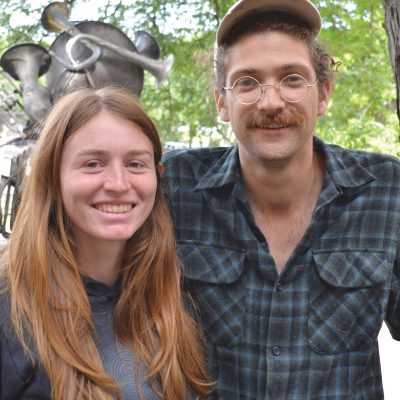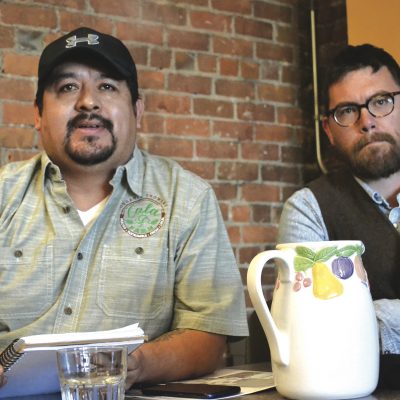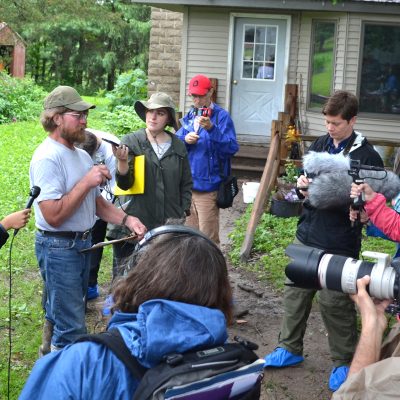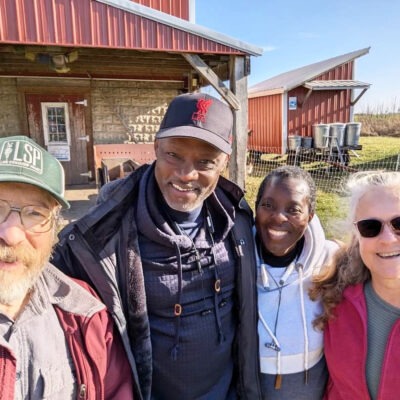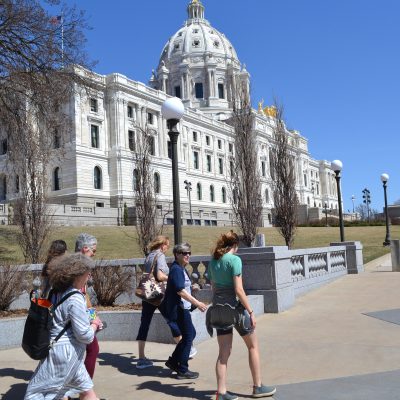Solar Powered Land Access
Proving Energy & Food Production Can Co-Exist — 1 Megawatt at a Time
On an overcast day in late June, Arlo Hark drives a semi into a gravel parking lot near the southeastern Minnesota community of Rushford pulling a trailer adorned with an “Eat Lamb: 10,000 Coyotes Can’t be Wrong” bumper sticker. He opens two doors on the side of the trailer and 120 lambs and ewes explode… Read More →
